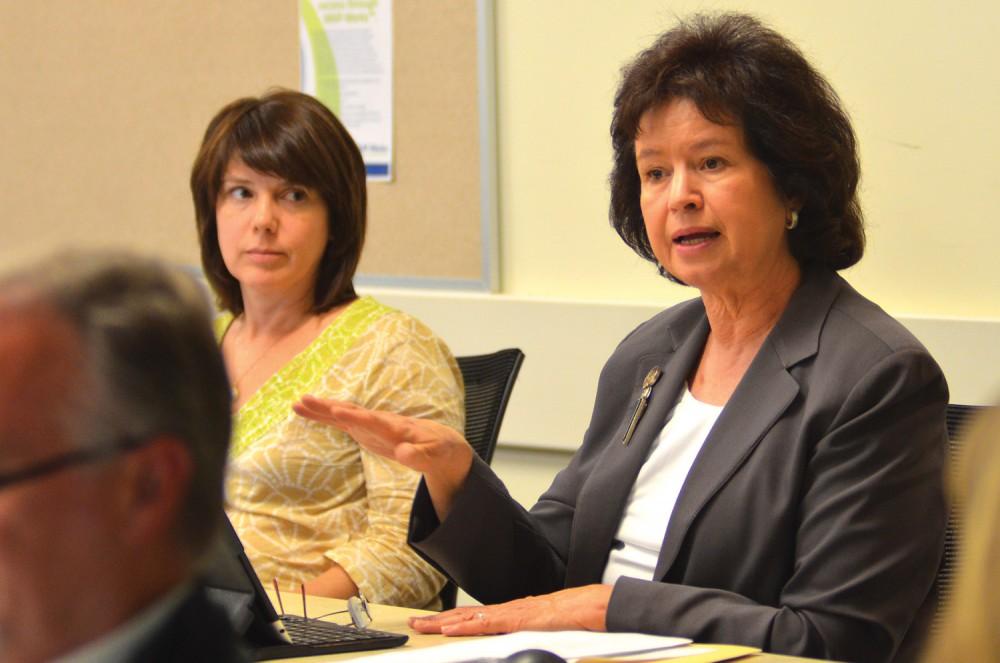UAS approves school psychology program, discusses retention

Archive / Nathan Kalinowski Provost Gayle Davis
Sep 29, 2013
The University Academic Senate unanimously approved the proposal for a school psychology program
during its Sept. 27 meeting. The three-year program will offer students the chance to earn their M.S.
in School Psychology as well as a Psy.S., which is a psychology specialist degree.
“In terms of demand for school psychologists in the job market, there is actually a very high demand
right now,” said Amy Campbell, assistant psychology professor at GVSU and a creator of the proposal.
“It’s one of the few fields in education in which they aren’t making cuts. There is quite a shortage in
Michigan as well as nationally, so usually what you’ll see in this program is a job placement of 100
percent. It’s very rare that a school psychologist is not able to get hired.”
Currently, there are five other schools in Michigan that offer a degree in school psychology: Andrews
University, Central Michigan University, Michigan State University, the University of Detroit Mercy and
Wayne State University.
“Most of the programs in the state tend to be very traditional programs,” Campbell said. “Our model is
very progressive. I think it will provide our students with a solid training, but it’s going to be different
enough that we will not only attract a lot of students but students who are very interested specifically
in our model of training.”
The program is expecting a cohort of 12 students each year. It will include two years of full-time
coursework for a total of 66 credits and a one-year internship in a school setting. It is the only
program in the state that will provide students the opportunity to receive Board Certified Behavior
Analyst certification.
“We get consistent requests from students who have already completed master’s degrees in special
education and are interested in going into School Psychology and would like to stay at Grand Valley in
order to accomplish that,” said professor Paula Lancaster, the chair of special education and
foundations technology in the College of Education. “Also the field of School Psychology and the role
of school psychologists have changed, so we would expect that there is a need for them.”
During the meeting, the UAS also addressed the issue of attrition at the undergraduate level at GVSU.
“Enrollment is down just slightly in head count, up just slightly in credit hours,” GVSU Provost Gayle
Davis said. “That means our students are getting into their programs and successfully graduating
faster than we would have predicted with past history as our guide. We end up, however, with a bit
more attrition from our freshman to sophomore year, and that is a troubling direction. This is a trend
that started four years ago, and we are now down to about the place we were 10 years ago in terms of
retention, freshman to sophomore years. As we bring in the largest freshman class we’ve ever had, we
are losing them at a faster rate.”
This is of particular concern because the university’s revenue comes from tuition; the state only
provides about 14 percent of what GVSU spends each year.
“Everything we do has to be careful so we don’t have to raise tuition too much and careful so that we
don’t recruit a student here who then decides to leave if it’s for a reason that we could have done
something about,” Davis said.























